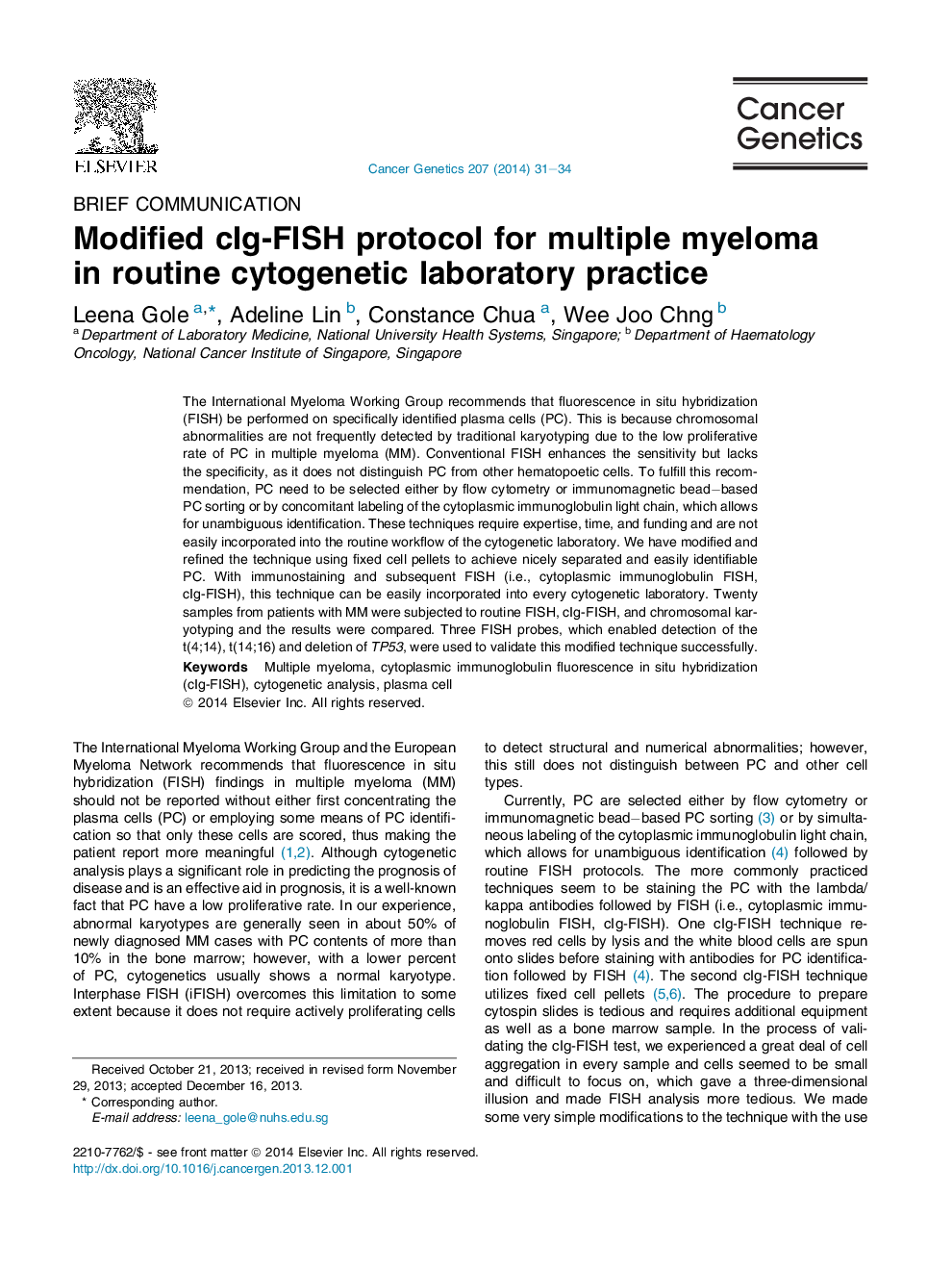| Article ID | Journal | Published Year | Pages | File Type |
|---|---|---|---|---|
| 2110392 | Cancer Genetics | 2014 | 4 Pages |
The International Myeloma Working Group recommends that fluorescence in situ hybridization (FISH) be performed on specifically identified plasma cells (PC). This is because chromosomal abnormalities are not frequently detected by traditional karyotyping due to the low proliferative rate of PC in multiple myeloma (MM). Conventional FISH enhances the sensitivity but lacks the specificity, as it does not distinguish PC from other hematopoetic cells. To fulfill this recommendation, PC need to be selected either by flow cytometry or immunomagnetic bead−based PC sorting or by concomitant labeling of the cytoplasmic immunoglobulin light chain, which allows for unambiguous identification. These techniques require expertise, time, and funding and are not easily incorporated into the routine workflow of the cytogenetic laboratory. We have modified and refined the technique using fixed cell pellets to achieve nicely separated and easily identifiable PC. With immunostaining and subsequent FISH (i.e., cytoplasmic immunoglobulin FISH, cIg-FISH), this technique can be easily incorporated into every cytogenetic laboratory. Twenty samples from patients with MM were subjected to routine FISH, cIg-FISH, and chromosomal karyotyping and the results were compared. Three FISH probes, which enabled detection of the t(4;14), t(14;16) and deletion of TP53, were used to validate this modified technique successfully.
